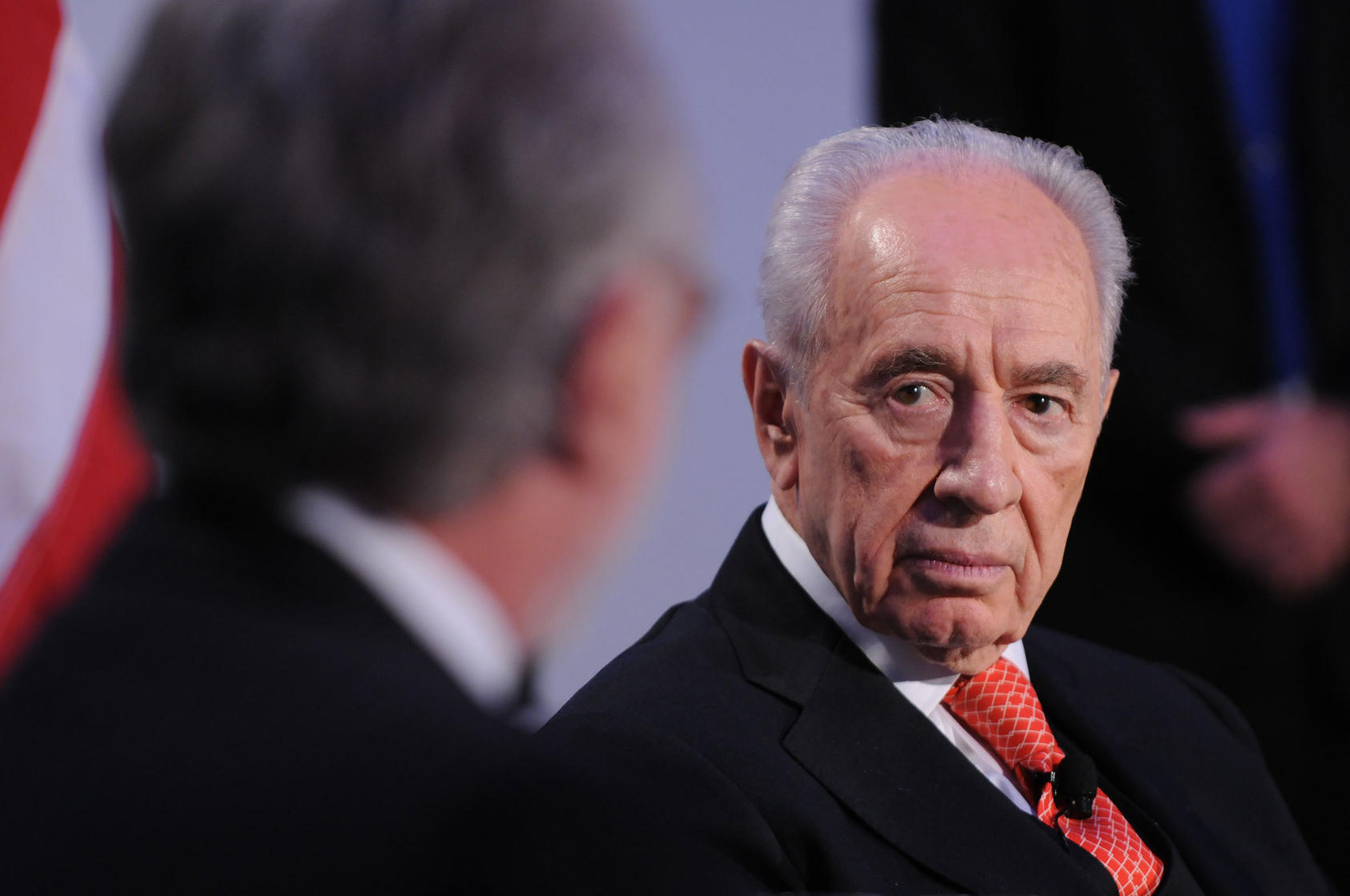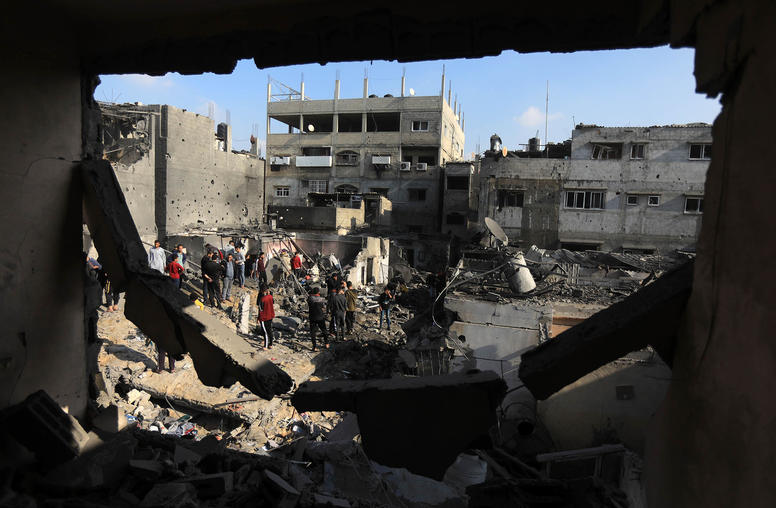Peres, in Pursuit of Peace, Advanced Power of the People
Shimon Peres served twice as Prime Minister of Israel and most recently as President. He was awarded the Nobel Peace Prize in 1994, along with Yitzhak Rabin and Yasser Arafat, for securing the Oslo peace accords, and he never stopped believing in the agreement’s principals and main contours for a two-state solution.

But Peres did not just believe in diplomacy as the route to a durable peace. From a posting at the U.S. Embassy in Tel Aviv, I worked closely with the Peres Center for Peace over the past three years and witnessed Peres’s unwavering conviction in the power of common people to break down barriers and join together to build a more peaceful and prosperous future. It is this pursuit that best embodies what Peres stood for and sought to achieve in his later years.
“In order to be great, you do not need a long sword, but unity and dialogue.” – Shimon Peres
Israel has always been a land of prophets, from Biblical to modern times. Many of its visionaries focused heavily on doom and gloom—Isaiah spoke of a future laid waste, Peter of “wells without water,” while contemporary skeptics state categorically that “there will never be a partner for peace.” Amid this pessimistic heritage, Peres stands out. He saw a brighter future, positive connections others missed and the true potential of common people.
Peres, who died on Sept. 28 at age 93, was the last of Israel’s founding leaders and lived through the tumultuous conflict years that, for many, affirmed that peace with Israel’s neighbors was unachievable. To the contrary, Peres believed that peace is essential, and he never stopped advocating for the idea that a future of peaceful co-existence between Israelis and Palestinians was possible.
He also believed in building that future from the ground up. Peres urged hi-tech companies, with their inherent capacity to transcend borders, to use their unique position to actively help stabilize the Middle East by promoting education and building technical capacity and interconnectivity among diverse young people. Peres saw unlikely connections, which he sought to leverage to solve problems.
Center of Innovation
In June, the Peres Center inaugurated the Israeli Center of Innovation, an educational hub and visitor’s center, whose stated purpose is in part to provide “every child—Christian, Jewish and Muslim alike—with the opportunity to learn about technology, persistence and determination.” It will use hi-tech to create a shared space for diverse cultures to interact and achieve, in the process not only advancing shared technological and scientific objectives, but, as current Israeli President Reuven Rivlin put it, laying out a vision for a model society. It was vintage Peres.
Peres also could see past the prejudices and stereotypes of the past, and embrace the underlying potential of each individual. This was the real grounding of his Center for Peace. In the two decades since it was founded, it has brought together more than 30,000 young Muslims, Jews and Christians in co-existence programs.
At the closing event for one such project, Bridges to Peace, Peres told a group of 600 Jewish and Arab youth “in order to be great, you do not need a long sword, but unity and dialogue . . . You will be the future leaders of tomorrow—don’t be afraid to take chances, to be curious, and to dream big.” He saw in every young person, Jew or Arab, a potential ambassador for this idea.
To the very end, Peres acted to fulfill his vision in support of peace and a better future. His next big thing was nano-technology, convinced that there will be technological solutions that we have only just begun to explore for addressing many of the world’s problems.
“My greatest mistake,” Peres recently reflected, “is that my dreams were too small.”
In a world of visionaries with limited dreams, Peres will always stand out. He is the very symbol of the work so many of us dedicate ourselves to accomplishing, and he will forever inspire us by his unstoppable belief in the power of common people to break down barriers and join together to build a more peaceful and prosperous future.
Keith Mines is an interagency fellow at USIP working on Middle East peace and decentralization as a mechanism to help stabilize failed and fragile states. He previously served as political counselor at the U.S. Embassy in Tel Aviv, managing security policy, the peace process, human rights and the relationship between the U.S. and Israel.



